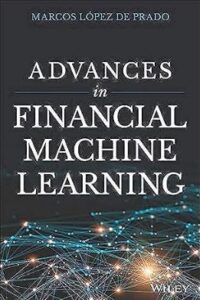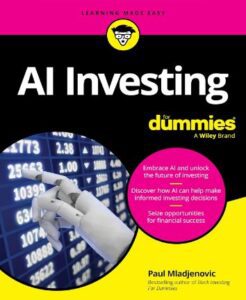The Revolutionary Impact of Artificial Intelligence on Finance and Investment
Artificial Intelligence (AI) is poised to revolutionize every aspect of our lives, but perhaps none more profoundly than the realms of finance and investment. As we stand at the precipice of this transformation, it is crucial to explore how AI will redefine investment strategies, data management, trend analysis, risk assessment, and the decision-making process itself. This article, The Impact of Artificial Intelligence on Finance , delves into the vast implications of AI on finance and investments, offering insights into a future where machines not only augment but potentially surpass human capabilities in managing wealth.
The Dawn of AI in Finance
AI has been steadily infiltrating the finance sector, driven by advancements in machine learning, big data analytics, and cloud computing. Traditional financial systems, which relied heavily on human expertise and manual processing, are being replaced by intelligent systems capable of processing vast amounts of data at lightning speed. The core benefits of AI in finance include enhanced efficiency, improved accuracy, and the ability to uncover patterns and insights that were previously unattainable.
I still remember one of my first projects in financial consulting more than 30 years ago: the unification of the treasury rooms of a new financial entity born from the merger of four different institutions. What first surprised me was the technification of operations, the crucial importance of executing an order in nanoseconds, the grouping of key information for the broker or agent’s decision-making, and the analysis of charts. Today, what was once the creation of one of the most modern treasury rooms in the world is now what a regular trader can have at home.
The advancement of technology means that human decision-making is less important, as AI’s data analysis is a million times more comprehensive. The speed of decision-making, doubt, and human insecurity are things of the past. Robots execute buy and sell orders in milliseconds after analyzing thousands of data points, and their execution is infinitely superior to what a human can achieve by pressing a button. Even if a human and a machine had the same information and were going to perform the same operation, the human could never beat the robot in speed when typing the buy or sell order; the bot will always be a nanosecond faster.

Transforming Investment Strategies
One of the most significant impacts of AI in finance is the transformation of investment strategies. Historically, investment decisions were based on fundamental analysis, technical analysis, and the intuition of seasoned investors. AI changes this dynamic by introducing algorithmic trading and robo-advisors, which leverage vast datasets to make investment decisions in real-time.
Algorithmic Trading
Algorithmic trading involves using AI algorithms to execute trades at speeds and frequencies that are impossible for human traders. These algorithms can analyze market conditions, historical data, and real-time news to make split-second trading decisions. The primary advantage of algorithmic trading is its ability to eliminate human emotions from the trading process, leading to more rational and consistent investment decisions.
Robo-Advisors
Robo-advisors are AI-driven platforms that provide automated, algorithm-based portfolio management advice without human intervention. They assess an individual’s risk tolerance, investment goals, and time horizon to create and manage a diversified portfolio. Robo-advisors democratize investment management by offering sophisticated financial advice at a fraction of the cost of traditional financial advisors.
Enhancing Data Management and Analysis
The financial industry generates and relies on an immense amount of data. AI excels at processing and analyzing this data to extract valuable insights. This capability transforms how financial institutions manage information and make decisions.
Big Data Analytics
Big data analytics involves examining large and varied data sets to uncover hidden patterns, unknown correlations, and other insights. AI can process vast amounts of structured and unstructured data from diverse sources, including financial statements, social media, and market news. This comprehensive analysis enables financial institutions to make more informed decisions and predict market trends with greater accuracy.
Natural Language Processing (NLP)
NLP is a branch of AI that focuses on the interaction between computers and human language. In finance, NLP can analyze news articles, earnings calls, and social media posts to gauge market sentiment and predict stock movements. By understanding and processing natural language, AI systems can provide deeper insights into market trends and investor behavior.
We should not only understand that AI will process millions of economic data points about a company, the value of its shares, its financial status, mergers and acquisitions, and other economic news. What is crucial is that AI can automatically gather any type of information that affects the company, including social media, gossip magazines, and TV shows. Any news that can be analyzed, from the health status of the company’s CEO to rumors on gossip shows about potential marriages between members of families in the same or complementary sectors, or any insignificant data that might be mentioned, AI will consider it in its analysis and decision-making process.
Accelerating Trend Analysis
AI’s ability to analyze large datasets in real-time significantly accelerates trend analysis. Financial markets are influenced by numerous factors, including economic indicators, geopolitical events, and market sentiment. AI can monitor these variables continuously and detect emerging trends before they become apparent to human analysts.
Predictive Analytics
Predictive analytics uses statistical algorithms and machine learning techniques to identify the likelihood of future outcomes based on historical data. In finance, predictive analytics can forecast stock prices, interest rates, and economic indicators. This forward-looking approach allows investors to anticipate market movements and adjust their strategies accordingly.
Sentiment Analysis
Sentiment analysis, a subset of NLP, involves interpreting and classifying emotions expressed in text data. By analyzing social media, news articles, and financial reports, AI can gauge market sentiment and predict its impact on asset prices. This real-time insight enables investors to make proactive decisions and capitalize on market opportunities.
Mitigating Risks and Threats
While AI offers numerous benefits, it also introduces new risks and challenges. Understanding and mitigating these risks is crucial for the sustainable integration of AI in finance.
Cybersecurity Threats
The increasing reliance on AI and digital platforms heightens the risk of cyberattacks. Financial institutions must invest in robust cybersecurity measures to protect sensitive data and ensure the integrity of AI systems. AI itself can be a powerful tool in detecting and preventing cyber threats by identifying unusual patterns and anomalies.
Ethical and Regulatory Challenges
The use of AI in finance raises ethical and regulatory concerns, including issues of transparency, accountability, and bias. Ensuring that AI systems are transparent and fair requires rigorous testing and validation processes. Regulatory bodies must establish clear guidelines to govern the use of AI in finance, balancing innovation with consumer protection.

AI vs. Human Mind: Objectivity and Decision-Making
A key debate in the integration of AI in finance is the comparison between AI-driven and human-driven decision-making. While AI offers objectivity and speed, the human mind brings intuition and emotional intelligence to the table.
Objectivity and Rationality
AI systems are inherently objective and free from emotional biases that can cloud human judgment. This objectivity leads to more rational investment decisions and consistent performance. However, AI’s reliance on historical data and predefined algorithms may limit its ability to adapt to unprecedented events or black swan scenarios.
Intuition and Experience
Human investors possess intuition and experience that enable them to navigate complex and ambiguous situations. While AI can analyze vast datasets, it may lack the contextual understanding and foresight that come from years of experience. The ideal approach may involve a hybrid model that combines the strengths of AI and human intelligence.
The Future of AI in Finance
As AI continues to evolve, its impact on finance and investment will only deepen. Emerging technologies such as quantum computing, blockchain, and advanced machine learning models will further enhance AI’s capabilities and expand its applications.
Quantum Computing
Quantum computing promises to revolutionize AI by providing unprecedented computational power. This technology could enable AI to process and analyze data at speeds unimaginable with classical computers. In finance, quantum computing could lead to breakthroughs in risk management, portfolio optimization, and fraud detection.
Blockchain and AI Integration
The integration of AI and blockchain technology offers new possibilities for transparency, security, and efficiency in financial transactions. Blockchain’s decentralized ledger system can provide a secure and immutable record of transactions, while AI can analyze and verify these transactions in real-time. This synergy could transform areas such as trade finance, compliance, and supply chain management.
Advanced Machine Learning Models
The development of advanced machine learning models, including deep learning and reinforcement learning, will enhance AI’s ability to make complex decisions. These models can learn from their environment and improve over time, leading to more sophisticated and accurate financial predictions. The continued advancement of AI algorithms will unlock new opportunities for innovation in finance.
Conclusion
The integration of AI into finance and investment is not just an evolution; it is a revolution. AI’s ability to process vast amounts of data, identify patterns, and make real-time decisions is transforming how we invest, manage risks, and understand markets. While challenges and risks exist, the potential benefits of AI far outweigh the drawbacks. As we embrace this new era, it is essential to strike a balance between leveraging AI’s capabilities and maintaining human oversight and ethical standards.
In the end, the future of finance will likely be shaped by a symbiotic relationship between AI and human intelligence. By harnessing the strengths of both, we can create a more efficient, transparent, and inclusive financial system that benefits everyone. The journey has just begun, and the possibilities are endless.
How will affect AI on our main business, investments on P2P Crowdlending?. We have talked on this post if you would like to know more.


